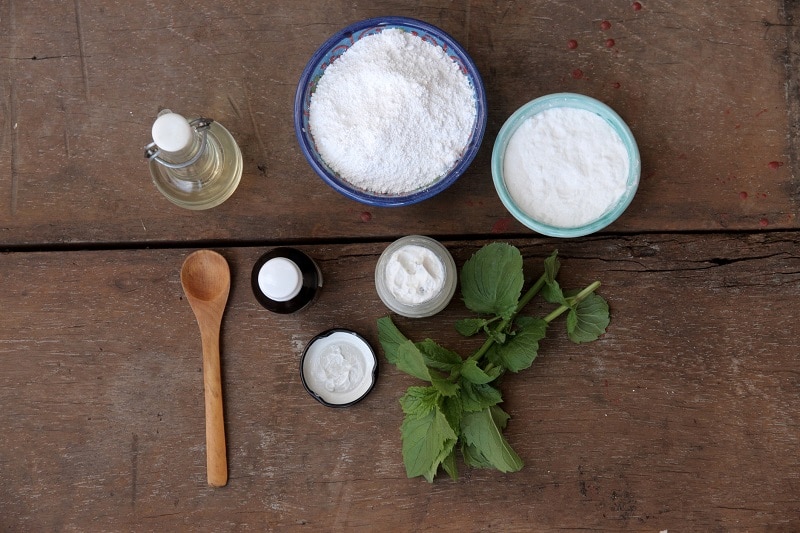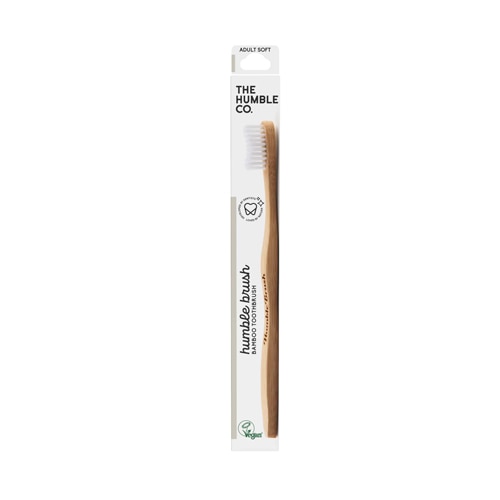Most of us were raised to believe that tooth decay and cavities were pretty much our fault because we had eaten too much candy and hadn’t
brushed our teeth well enough. Many of us have also been under the impression that it was irreversible.
Wrong (mostly)! More and more evidence suggests that only the eating candy part is actually true.

Observations of many native populations who ate traditional diets prior to the introduction of refined sugars and refined flour showed they
suffered virtually no tooth decay — even when their teeth were ground down from eating gritty foods, despite never brushing their teeth or seeing a dentist (no, we are not suggesting you emulate this; brushing your teeth is one of the most effective mainstream ways to help protect your teeth from the physical effects of eating a less-than-optimal diet).
The connection between diet, bacteria & dental health
A recent scientific study shed some light on why native populations didn’t suffer from tooth decay: People in the study who switched to a diet low in sugar, refined carbohydrates and phytic acid, and high in minerals (calcium, magnesium and phosphorus) and fat soluble vitamins (A, D, E and K) both reduced their risk of developing tooth decay and actually reversed decay that had been present. Yes, teeth CAN heal.
Let’s talk a little more about what’s going on in your mouth — especially that slick, slimy coating that grows all over your teeth, tongue and gums. This coating is a “biofilm,” or a tough layer of living bacteria, in which the individual bacterium cling tightly to each other and to surfaces, making them very, very hard to dislodge. Biofilm is also called plaque. But “biofilm” may be a better term, as it reminds us it is a living film of bacteria: bacteria that cause tooth decay and gum disease, and that are ready to take advantage of teeth and gums made vulnerable by less-than-optimal nutrition, inflammation and stress.
Brushing with a
store-bought toothpaste (please avoid any brands that contain
triclosan) or a
homemade baking-soda-based toothpaste will help keep that nasty biofilm at bay for a few hours. But it may not be able to banish the sticky film completely (if you have yucky, slimy,
morning breath after brushing last thing before bed, you’ve got a biofilm problem). A biofilm is a signal that the ecosystem in your mouth is out of whack — in other words, you have lots of disease- and decay-causing bacteria and not enough beneficial bacteria.
Trying to kill off every living bacterium in your mouth is not the answer. After generations of millions of people dutifully swished antibacterial mouthwashes around twice a day — and still suffered from tooth decay and
gum disease — we are pretty sure that attempting to kill off all the bacteria, bad and good, in your mouth doesn’t work. And, even if you could do it, a mouth with no bacteria would be the perfect place for any new bacteria that arrived, good or bad, to reproduce wildly — which is definitely not a good situation.
It's time to try something different
You’re probably wondering what else you can do, especially if you already have tooth decay or gum disease. Changing your diet is critical to dental health, but you may not be ready to completely give up on
refined foods (or you ate them in the past, leaving your teeth vulnerable to decay) and brushing hasn’t helped enough.
The benefits of probiotic toothpaste
Brushing with
probiotic toothpaste can help make your mouth a healthier place by not only temporarily dislodging bad bacteria, but also actually adding GOOD bacteria (
probiotics) to displace the decay- and disease-causing ones!
Studies increasingly support probiotic toothpaste as an effective way to deliver those good bacteria to where they will do the most good, better than a probiotic rinse. Other
studies show that routine brushing with a probiotic toothpaste for even a few weeks
can help decrease the levels of disease- and bad-breath-causing bacteria in your mouth, reduce plaque/biofilm buildup, and ease gum inflammation.
Here’s how to make a batch of homemade probiotic toothpaste and turn your toothbrush into a magic wand!
How to make probiotic toothpaste
A blend of
coconut oil,
bentonite clay powder, probiotics and prebiotics forms the foundation of this homemade probiotic toothpaste recipe. Bentonite clay powder looks off-white or pale gray in the jar but turns a more intense brownish-gray when mixed with coconut oil. This is normal. Your probiotic toothpaste isn’t going to win any beauty contests, but your mouth will love it!
Be sure to stir until completely blended. It will be a bit runny at first, but it will set up as it cools. I recommend making smaller batches more frequently to ensure freshness.
Scoop the completed paste into a small glass jar with a lid (use a jar rather than a tube because coconut oil liquifies at 76 degrees F and the paste will get soft, or even runny, at warm room temperatures and very firm at cool room temperatures (even low 60s), making it hard to squeeze out of a tube).
Store at room temperature.
How to use homemade probiotic toothpaste
Using a small spoon or knife, scoop about a ½ teaspoon of probiotic toothpaste onto your
toothbrush (pressing your brush into the paste works, too, but make sure each person in the family has his or her own jar if you do this). Give your teeth — and all the other surfaces in your mouth — a good brushing.
The paste will liquefy almost immediately when put into your mouth, so there is no need to add water. When you are done brushing, swish the liquid around, forcing it through the gaps between your teeth. This helps to get the probiotics into all the nooks and crannies your brush can’t reach. Then spit out the remainder and rinse with water.
How to Make Probiotic Toothpaste

- 2 Tbsp. coconut oil
- 1-2 Tbsp. bentonite clay
- 1 capsule organic probiotics
- 1 capsule FOS (fructooligosaccharides) (or other inulin-type prebiotic)
- Up to 1/2 Tbsp. xylitol powder (optional)
- Up to 10 drops peppermint essential oil (or other essential oil)
- Place coconut oil container in bowl of hot water to liquify contents. Note: Depending on the temperature of the room, this may take up to 15 minutes.
- In another small bowl, combine all ingredients (including liquified coconut oil). Tip: To open capsules, use fingertips to gently pull and twist open over the bowl. Dump powder into bowl.
- Stir until completely blended. Mixture will be a bit runny, but it will set as it cools.
- Scoop paste into small glass jar and cover with lid. Store at room temperature.
- Adding more clay helps keep your paste firmer in warm weather; adding less clay makes it less firm, which makes dispensing it easier in the winter if your house is cool.
- Probiotics are living beneficial bacteria; for this recipe, pick one that can be stored at room temperature.
- Prebiotics are natural fiber compounds that boost the activity of probiotic bacteria.
- Bentonite clay tastes, well, mild and clay-like. It isn’t unpleasant, but adding xylitol makes the paste sweeter, which kids may find more acceptable.
- Pleasantly-flavored essential oils help make the paste more palatable and leave a nice aftertaste.
- Order the ingredients you need to make this probiotic toothpaste at Vitacost.com!

 Observations of many native populations who ate traditional diets prior to the introduction of refined sugars and refined flour showed they suffered virtually no tooth decay — even when their teeth were ground down from eating gritty foods, despite never brushing their teeth or seeing a dentist (no, we are not suggesting you emulate this; brushing your teeth is one of the most effective mainstream ways to help protect your teeth from the physical effects of eating a less-than-optimal diet).
Observations of many native populations who ate traditional diets prior to the introduction of refined sugars and refined flour showed they suffered virtually no tooth decay — even when their teeth were ground down from eating gritty foods, despite never brushing their teeth or seeing a dentist (no, we are not suggesting you emulate this; brushing your teeth is one of the most effective mainstream ways to help protect your teeth from the physical effects of eating a less-than-optimal diet).





